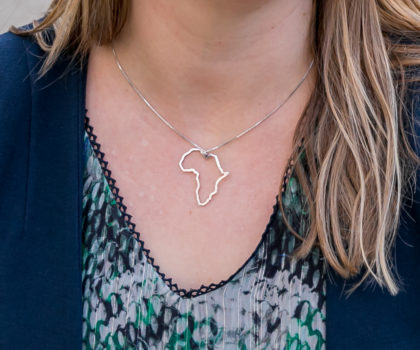Research
Research interests
Research collaborators
Postdocs and Ph.D. candidates
Research interests
Dr. Vredeveldt investigates how eyewitnesses remember crimes and how police interviewers can help them remember more and better. Improvements in witness interviewing would help the police obtain more valuable information from witnesses, which could lead to more criminal cases being solved. Her three main lines of research on eyewitness memory are outlined in more detail below.
Other research interests include: investigative interviewing, misinformation and false memories, police reports, face recognition, facial composite construction, own-race bias, confidence-accuracy relationships, and memory-based methods to detect deception.
Eyewitness memory in cross-cultural contexts
An ERC Starting Grant research team led by Dr. Vredeveldt investigating eyewitness memory in cross-cultural contexts. Our increasingly international society demands that eyewitnesses of serious crimes regularly provide testimony in cross-cultural settings. This poses significant challenges for investigators and legal decision-makers. Errors in fact-finding may result in wrongful convictions and unjust acquittals. Yet, eyewitness memory research has predominantly focused on Western, Educated, Industrialized, Rich, and Democratic (WEIRD) witnesses. The ERC project encompasses subprojects on South African police interviews, eyewitness testimony provided at the International Criminal Tribunal for Rwanda, and statements made by asylum seekers from Sub-Saharan African countries.
Discussion between witnesses
As a Branco Weiss Fellow, Dr. Vredeveldt investigated what happens when eyewitnesses are interviewed in pairs. Where previous research on co-witness discussion focused primarily on memory contamination after exposing witnesses to errors, she examined naturalistic conversations between witnesses. In a series of experiments, she found that witnesses were actually much more likely to correct each other’s errors than to adopt each other’s errors. In addition, witnesses provided each other with memory cues that sparked new memories after the discussion. Pairs who actively acknowledged, repeated, rephrased and elaborated upon each other’s contributions were especially succesfull at remembering together.
Dr. Vredeveldt’s findings that collaboration between witnesses can have significant benefits for eyewitness testimony run counter to the dominant narrative in the literature on co-witness discussion. Under certain conditions, co-witness discussion may not be not as bad as previously thought. The effectiveness of the collaborative interview in real-life settings was also tested in a field research project with the Dutch national police, led by Eva van Rosmalen.
The Eye-Closure Interview
During her Ph.D. and postdoctoral research, Dr. Vredeveldt investigated a new method intended to help witnesses remember more: closing the eyes during the investigative interview. By closing the eyes, witnesses can block out distractions from the environment (such as non-verbal cues from the interviewer) and focus on their mental image of the witnessed event. In a series of experiments, she found benefits of eye-closure for memory of events across a variety of conditions.
Dr. Vredeveldt’s research on the Eye-Closure Interview has attracted attention from police interviewers all over the world, who have implemented the procedure in their practice. She conducted a large-scale field study with the South African Police Services and was invited to give lectures on the Eye-Closure Interview at the European Police College course on investigative interviewing for senior police officers, at the Investigative Psychology Unit of the South African Police Services, and at the High-Value Detainee Interrogation group of the American FBI.
Postdocs, PhD candidates and research assistants
Current
Dr. Fenia Ferra (VU University Amsterdam, Postdoctoral Fellow, projected to complete 2025).
Cross-cultural training for investigative interviewers.
Dylan Drenk (VU University Amsterdam, Ph.D. Candidate, projected to complete 2025).
Eyewitness evidence in international criminal cases.
Gabi de Bruïne (VU University Amsterdam, Ph.D. Candidate, projected to complete 2025).
Cross-cultural factors in asylum interviews.
Kate Kempen (University of Cape Town, Ph.D. Candidate, projected to complete 2025).
The effects of composite construction on facial recognition.
Eva van Rosmalen (VU University Amsterdam, Research Assistant).
Collaborative interviewing in the field.
Maria Shenouda (VU University Amsterdam, Research Assistant).
Eyewitness memory in cross-cultural contexts.
Completed
Dr. Laura Weiss (VU University Amsterdam, Postdoc completed in 2021).
Cultural influences in South African eyewitness interviews.
Dr. Simon Oleszkiewicz (VU University Amsterdam, Postdoc completed in 2022).
Disclosing evidence and information in suspect interviews.
Dr. Linda Kesteloo, LL.M. (VU University Amsterdam, Ph.D. completed in 2024).
Proving witness reliability.
Dr. Alicia Nortje (University of Cape Town, Ph.D. completed in 2018).
Investigating facial recognition for multiple-perpetrator crimes.
Krista King (VU University Amsterdam, Research Assistant completed in 2024).
Eyewitness memory in cross-cultural contexts.
Research collaborators
Prof. Peter van Koppen (VU University Amsterdam)
Prof. Barbora Hola (VU University Amsterdam)
Dr. Linda Kesteloo, LL.M. (VU University Amsterdam
Prof. Colin G. Tredoux (University of Cape Town)
Prof. Alan D. Baddeley (University of York)
Prof. Graham J. Hitch (University of York)
Prof. Tim J. Hollins (University of Plymouth)
Prof. Steven D. Penrod (John Jay College of Criminal Justice, CUNY)
Dr. James D. Sauer (University of Tasmania)

